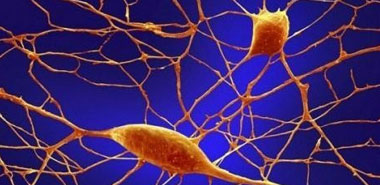研究人员发现了一种有助于大脑长出新细胞的药物,并称他们的研究可能有助于提高治疗老年痴呆症试验药物的疗效。
此前已有研究表明,包括人类在内,所有哺乳动物在整个生命周期都会制造脑细胞。其中多数新生脑细胞都会死亡,但最新研究发现的药物能帮助更多的新生细胞存活,并成长为真正活跃的脑细胞。
得克萨斯大学西南医疗中心的Andrew Pieper在电话采访中表示:“我们的大脑每天都在产生新的神经元。新发现的药物能允许更多神经元存活。”
这种药物暂时命名为P7C3,研究人员已着手提高其疗效。他们称这种药物似乎很安全,即使作为药丸服下也可起效。
Pieper和同事们在《细胞》(Cell)杂志发表报告称,这种药物类似于Medivation公司和辉瑞公司联合开发的老年痴呆症试验性药物Dimebon,且可能有助于改善其药效。
推荐原文出处:
Cell doi:10.1016/j.cell.2010.06.018
Discovery of a Proneurogenic, Neuroprotective Chemical
Andrew A. Pieper, Shanhai Xie, Emanuela Capota, Sandi Jo Estill, Jeannie Zhong, Jeffrey M. Long, Ginger L. Becker, Paula Huntington, Shauna E. Goldman, Ching-Han Shen, Maria Capota, Jeremiah K. Britt, Tiina Kotti, Kerstin Ure, Daniel J. Brat, Noelle S. Williams, Karen S. MacMillan, Jacinth Naidoo, Lisa Melito, Jenny Hsieh, Jef De Brabander, Joseph M. Ready, Steven L. McKnight
An in vivo screen was performed in search of chemicals capable of enhancing neuron formation in the hippocampus of adult mice. Eight of 1000 small molecules tested enhanced neuron formation in the subgranular zone of the dentate gyrus. Among these was an aminopropyl carbazole, designated P7C3, endowed with favorable pharmacological properties. In vivo studies gave evidence that P7C3 exerts its proneurogenic activity by protecting newborn neurons from apoptosis. Mice missing the gene encoding neuronal PAS domain protein 3 (NPAS3) are devoid of hippocampal neurogenesis and display malformation and electrophysiological dysfunction of the dentate gyrus. Prolonged administration of P7C3 to npas3/ mice corrected these deficits by normalizing levels of apoptosis of newborn hippocampal neurons. Prolonged administration of P7C3 to aged rats also enhanced neurogenesis in the dentate gyrus, impeded neuron death, and preserved cognitive capacity as a function of terminal aging.








